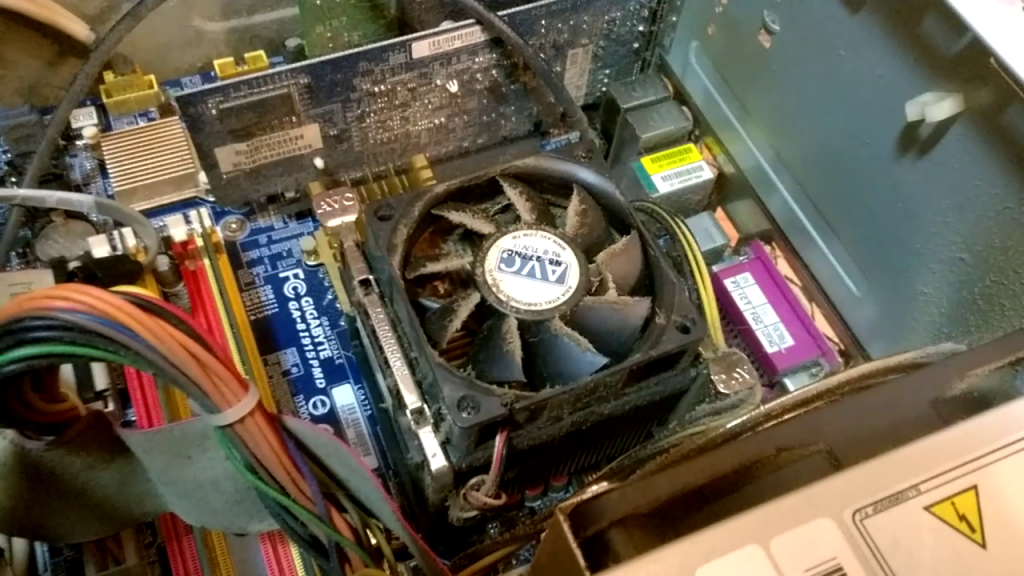Cleaning a Desktop Computer
The sheer amount of dust that can get inside a computer can be surprising.

Dusting inside your computer is crucial for maintaining its performance and longevity. Dust accumulation causes overheating, leading to reduced performance and hardware failure. Here’s a step-by-step guide to help you dust your computer safely.
Why Dusting is Important
- Prevents Overheating: Dust will clog fans and heatsinks, reducing their efficiency and causing the computer to overheat.
- Improves Performance: A clean computer runs more efficiently, ensuring that hardware components like the CPU and GPU operate at optimal temperatures.
- Extends Lifespan: Regular cleaning can prevent dust-related damage, extending the lifespan of your computer hardware.
How to Dust Your Computer Safely
- Shut Down the Computer Properly
- Use the Start Menu > Power button > Shutdown option.
- Wait for the screen to go black and all lights on the main unit to turn off.
- Turn Off the Power Supply
- Switch off the power cable at the wall socket.
- Document Cable Connections
- Before unplugging anything, take a photo of the back of your computer. This will help you remember where each cable goes.
- Unplug and Position the Computer
- Unplug the main unit and move it to a well-lit area where you can work comfortably.
- Position the computer with the opening side facing upwards.
- Open the Computer Case
- The method for opening the case varies by manufacturer:
- Some cases require a screwdriver to remove up to three screws.
- Others have a lever-operated catch mechanism.
- Remove the panel and set it aside.
- The method for opening the case varies by manufacturer:
- Use an Air Duster
- Important: Do not use liquids to clean the inside of the computer.
- Use an air duster to blow dust out of hard-to-reach areas, such as between heatsink fins and around fan blades. This avoids the risk of water damage or static electricity.
- Clean the Fan Blades Carefully
- Hold the fan blades in place while cleaning to prevent them from spinning. Spinning the blades with an air duster can generate a small electrical charge, risking damage to the hardware.
- Reassemble the Computer
- Once you are satisfied that the fans and heatsinks are free of dust, reattach the panel.
- Plug the cables back in, referring to the photo you took earlier if needed.
- Power the computer back on.
By following these steps, you will ensure that your computer remains clean and operates efficiently. Regular maintenance like this goes a long way to prevent overheating and extend the life of your hardware.


Leave a Reply